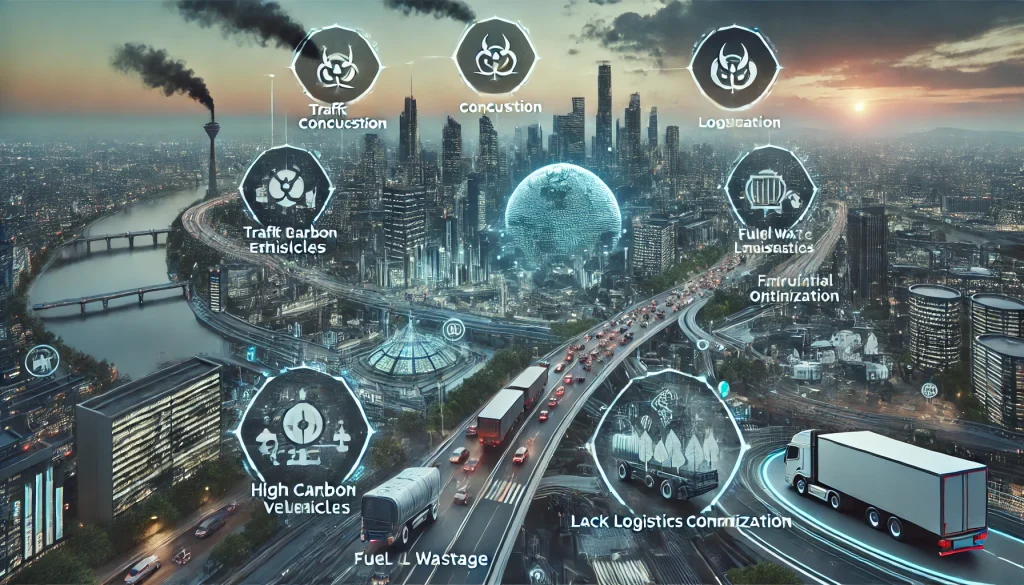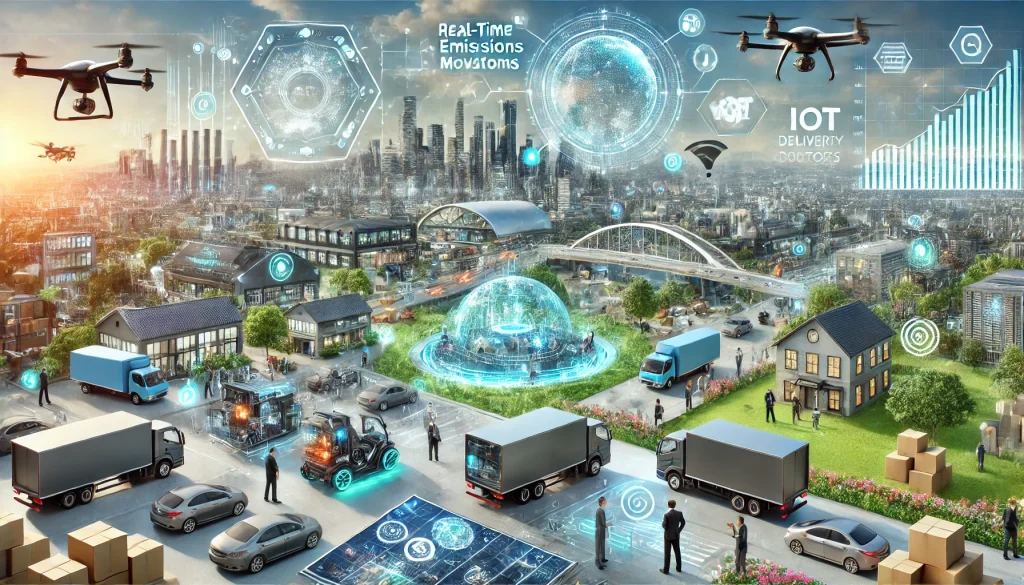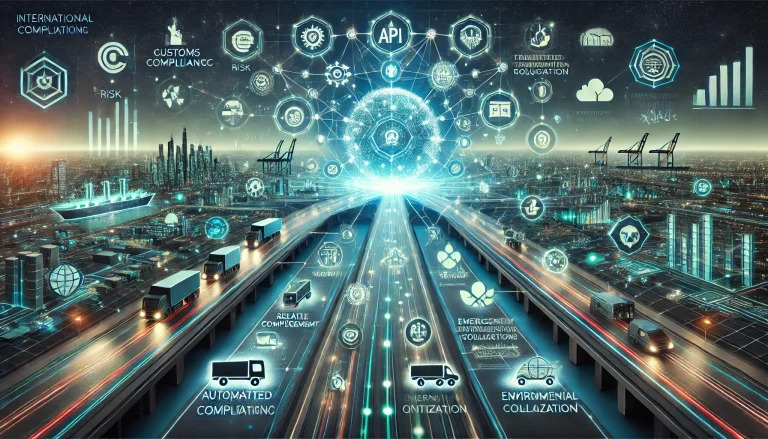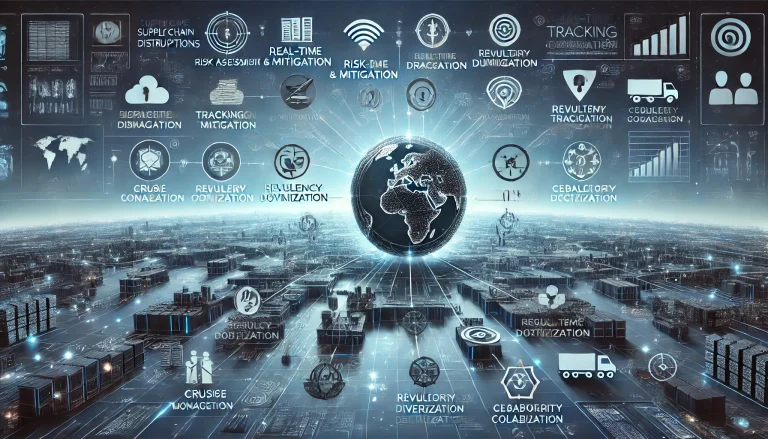Problem Statement
The transportation sector is a significant contributor to environmental pollution. Companies involved in the movement of goods and people are under increasing pressure to reduce their carbon footprint. This involves adopting cleaner technologies, optimizing routes, and reducing fuel consumption, which can be challenging and costly. Addressing these challenges requires a comprehensive platform that integrates advanced technologies and sustainable practices to enhance efficiency and minimize environmental impact.
Pain Points
- High Carbon Emissions: Significant emissions from traditional fuel-based vehicles.
- Fuel Costs: Rising fuel prices impacting operational costs.
- Route Inefficiencies: Suboptimal routes leading to increased fuel consumption and emissions.
- Technology Adoption: High costs and complexity associated with adopting cleaner technologies.
- Regulatory Compliance: Navigating stringent environmental regulations.
- Operational Costs: Balancing the costs of sustainable practices with operational budgets.
- Data Integration: Difficulty in integrating data for real-time decision making.
- Stakeholder Coordination: Ensuring coordination among various stakeholders for sustainable practices.
- Customer Expectations: Meeting growing consumer demand for sustainable practices.
- Infrastructure Limitations: Lack of infrastructure to support green technologies.

Future Vision
Our vision is to develop a robust digital platform that leverages advanced technologies such as AI, IoT, and electric vehicles to create a sustainable and efficient logistics network. This platform will provide tools for route optimization, real-time monitoring of emissions, and the adoption of cleaner technologies. By integrating these technologies, the platform will help reduce carbon emissions, lower fuel costs, and enhance overall operational efficiency. The ultimate goal is to create a greener, more sustainable transportation sector that meets regulatory requirements and consumer expectations.
Use Cases
- Route Optimization: AI-driven tools for optimizing delivery routes to reduce fuel consumption and emissions.
- Emission Monitoring: IoT-enabled sensors for real-time monitoring of vehicle emissions.
- Electric Vehicle Integration: Adoption of electric and hybrid vehicles to reduce carbon footprint.
- Fuel Efficiency Analytics: Tools for analyzing fuel consumption patterns and identifying savings opportunities.
- Regulatory Compliance: Automated systems for tracking and ensuring compliance with environmental regulations.
- Sustainability Reporting: Platforms for generating reports on sustainability metrics and achievements.
- Resource Management: Efficient planning and utilization of resources to minimize waste.
- Stakeholder Collaboration: Tools for enhancing coordination among suppliers, manufacturers, and logistics providers.
- Customer Engagement: Platforms for communicating sustainability initiatives to customers.
- Infrastructure Development: Solutions for developing and supporting green infrastructure.
Target Users and Stakeholders
Target Users:
- Logistics companies
- Transportation providers
- Retailers
- Manufacturers
Stakeholders:
- Supply chain managers
- Environmental regulatory bodies
- Technology providers
- Consumers
Key Competition
- Geotab: Telematics solutions for fleet management and sustainability.
- Trimble: Transportation and logistics technology for route optimization and fuel efficiency.
- Verizon Connect: Fleet management solutions focusing on efficiency and sustainability.
- Samsara: IoT solutions for real-time monitoring and optimization of logistics operations.
- Fleet Complete: Fleet management and telematics solutions for improving sustainability.
Products/Services
- AI Route Optimization: Tools for optimizing delivery routes and reducing fuel consumption.
- IoT Emission Monitoring: Sensors for real-time tracking of vehicle emissions.
- Electric Vehicle Integration: Platforms for managing the adoption and use of electric vehicles.
- Fuel Efficiency Analytics: Tools for analyzing and improving fuel efficiency.
- Compliance Management: Automated systems for ensuring regulatory compliance.
- Sustainability Reporting: Platforms for tracking and reporting sustainability metrics.
- Resource Management Tools: Solutions for efficient resource planning and utilization.
- Collaboration Platforms: Tools for enhancing stakeholder coordination and collaboration.
- Customer Engagement Solutions: Platforms for communicating sustainability efforts to customers.
- Infrastructure Solutions: Tools for developing and supporting green logistics infrastructure.
Active Startups
- Convoy: Digital freight network focusing on reducing empty miles and carbon emissions.
- Onfleet: Delivery management software with a focus on sustainability and efficiency.
- FreightWaves: Data and analytics platform for the freight industry, emphasizing sustainability.
- Einride: Autonomous and electric transport solutions for reducing environmental impact.
- Volta Trucks: Electric truck manufacturer focused on sustainable urban logistics.
- Udelv: Autonomous delivery vehicles designed for reducing emissions.
- Fleetonomy: AI-powered fleet management solutions for optimizing operations.
- Effenco: Hybrid electric systems for reducing emissions in heavy-duty vehicles.
- Grid Logistics: Sustainable logistics solutions for urban freight transport.
- Transfix: Digital freight brokerage optimizing routes and reducing emissions.
Ongoing Work in Related Areas
- AI for Route Optimization: Implementing AI to optimize routes and reduce fuel consumption.
- IoT for Emission Monitoring: Using IoT sensors for real-time tracking of vehicle emissions.
- Electric Vehicle Adoption: Promoting the use of electric and hybrid vehicles in logistics.
- Fuel Efficiency Tools: Developing tools for analyzing and improving fuel efficiency.
- Compliance Automation: Creating automated systems for regulatory compliance.
- Sustainability Reporting Platforms: Tools for tracking and reporting sustainability efforts.
- Resource Management Solutions: Innovating solutions for efficient resource utilization.
- Stakeholder Collaboration Tools: Enhancing collaboration among supply chain stakeholders.
- Customer Engagement Platforms: Communicating sustainability initiatives to customers.
- Green Infrastructure Development: Developing infrastructure to support sustainable logistics.
Recent Investment
- Convoy: $400 million in Series D funding (2023) led by Generation Investment Management.
- Onfleet: $25 million in Series B funding (2023) from Kayne Partners Fund.
- Einride: $110 million in Series C funding (2023) led by Temasek.
- Volta Trucks: $260 million in Series C funding (2023) led by Luxor Capital.
- Udelv: $40 million in Series B funding (2023) from Denso Corporation.
Market Maturity
The market for sustainable transportation solutions is rapidly maturing, driven by the need for efficiency, regulatory compliance, and reduced environmental impact. Technological advancements and significant investments are propelling the development and adoption of innovative solutions. Continued investment and collaboration among stakeholders are crucial for achieving market maturity and maintaining a competitive edge.
Summary
The transportation sector’s significant contribution to environmental pollution requires urgent action to reduce carbon emissions and improve sustainability. A comprehensive digital platform leveraging AI, IoT, and electric vehicles can address these challenges by optimizing routes, monitoring emissions, and adopting cleaner technologies. This platform will help reduce fuel costs, lower carbon emissions, and enhance overall operational efficiency. Active startups and ongoing innovations are driving the development of these solutions, supported by recent investments and a growing market awareness. The vision for the future is a greener, more sustainable transportation sector that meets regulatory requirements and consumer expectations.


